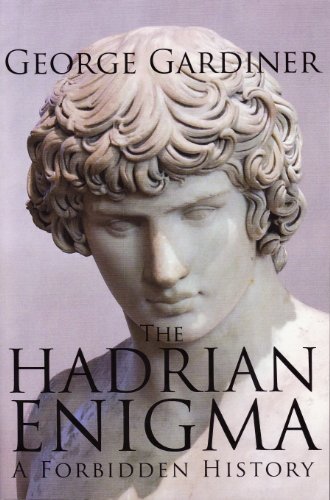The Hadrian Enigma: A Forbidden History
A fair-haired young man, dressed in rich ceremonial armor, is found dead in the Nile River. When he is identified, everyone realizes the dangerous political implications of this death, because Antinous was the eromenos—the lover and protégé—of the Roman Emperor Hadrian.
A grief-stricken Hadrian appoints two members of the court, Suetonius and his patron Clarus, to find out how and why Antinous died. They have two days to find the answer, permission to interrogate anyone except the Emperor and Empress, and the promise that they may forfeit their lives if they fail to satisfy Hadrian.
Failure is a distinct possibility. While Antinous was well-liked and respected, the circle of suspects is wide, as it often will be when the victim is the confidant of an absolute ruler. The two sleuths quickly draft unlikely but able assistants to help them, including a scribe and an observant, multilingual prostitute.
The book offers an extensively researched picture of life in the Roman Empire of 130 AD. Gardiner is equally convincing when writing about imperial politics and succession laws, marriage and sexual customs, philosophy and the theater.
The prose can be overwrought, and the language is occasionally jarringly politically correct. (“Sex worker”, for example, as a term for prostitute, did not appear before the twentieth century.) But The Hadrian Enigma—a mix of mystery, comedy, gay and straight romance—is an entertaining read.










